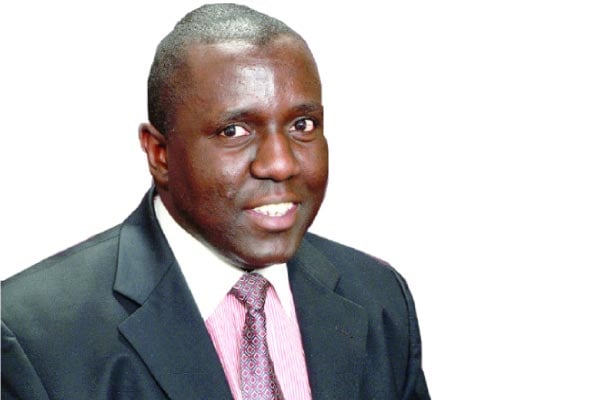Prime
The Indian Century is already here

Author: Karoli Ssemogerere. PHOTO/FILE
What you need to know:
- Africa’s century has been drowned in the protracted efforts of her former colonial masters to claw back their power and influence; In our face is the Indian-Asian century.
At the end of what was once one road, connecting Gerenge (now Garuga) is a small township Mpala-Kitala now dissected by both the old Entebbe Road and the Kampala-Entebbe expressway. There is a small bar, Namakula Point operated by Samwiri Lwanga Lunyiigo, historian and anthropologist, whom I mentioned last week, author of Uganda, an Indian Colony.
Mr Lwanga Lunyiigo’s captivating subject, the colonial economy crested on cotton, first, then coffee, and its contribution to profit repatriation has two other themes. The second, being the utility of the cash crop economy to the British imperialist enterprise.
Uganda was profitable to both the British and the 1 percent Indian population who dominated the “commanding heights” of the economy. The third theme, has been the continuation of this fact today. In his estimation, 25 of the 50 richest Ugandan businessmen are Indian.
To which I now turn, the relative success of the Indian diaspora into creating a multi-continent social and political behemoth, that the world is slowly waking up to.
First, the brutal forces of colonialism and the later breakup of India into three countries in 1947, India and Pakistan, and then the breakaway Republic of Bangladesh in 1971 sponsored by India, from the former East Pakistan. Millions were displaced. India the mother country, hardly encouraged them to return home, but supported their re-establishment in new lives across the world.
Both India’s (Pakistan and India) are nuclear powers. India is now the world’s sixth largest economy, and soon most populous country. Inside India, is a strange specialization, of the mechanics and metal-smiths in India, the capitalist classes and agrarian base in India, and now the duakalis, textile makers who have found wealth in Bangladesh, perennially unstable but fast growing. In the first elections of 2024, Sheikh Khaleda Zia won- re-election while her perennial opponent, former Prime Minister Sheikh Hasina Zawed (1996-2001) was in prison. In Pakistan, an election is coming up soon, and former Prime Minister Imran Khan, is in jail, while his former opponents, including Nawaz Sharif, are back in contention for power after stints in exile.
But that is just a side-show. In 2022, the United Kingdom ushered into office one of its youngest Prime Minister Rishi Sunak, a Hindu into office, age 42. And in Scotland, the equivalent of the Kingdom of Buganda elected its First Minister, Humza Yousaf, age 38 in 2023. Across the pond in the United States, in the ruthless battle for the Republican presidential nomination.
Mr. Donald Trump has put a new definition on politics as a contact sport, with 91 charges to boot, is batting away for now, 1 of the survivors, is a former UN Ambassador and South Carolina Governor, Niki Haley, former UN Ambassador also of Indian descent.
In South Africa in the 2024 polls, should the ANC as expected fail to clear a 50 percent majority, it will be expected to share power with either their arch-rivals on the left, the Economic Freedom Fighters or to the right with the largest opposition party the Democratic Alliance, one whose bedrock of support are the Indian and Coloured communities.
Africa’s century has been drowned in the protracted efforts of her former colonial masters to claw back their power and influence; In our face is the Indian-Asian century.
First India, the motherland overtook China as the world’s most populous nation with millions more reside in the states around it; and in the diaspora Second India overtook India as the world’s sixth largest economy. Third is the pre-existing status of both India and Pakistan as nuclear powers.
Fourth is the Indian soft-power, the form we adore when we buy kanzus and busuutis for social occasions.
India for sure has not shared its languages like their predecessors, the British and the French but this was deliberate. What do these changes mean for the politico-civil-military complex, the men in suits who run the global economy?
In the battle for raw materials, what is India’s position? These and other questions continue to beg for answers.
Mr Karoli Ssemogerere is an Attorney-At-Law and an Advocate. [email protected]


